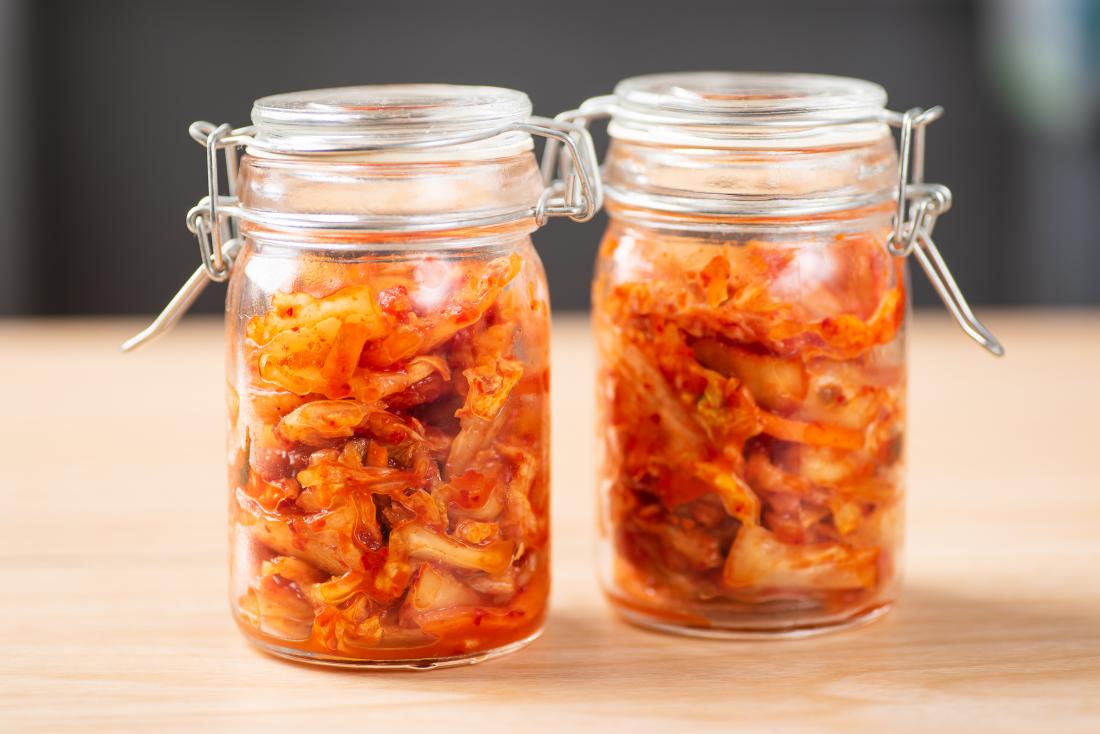
What are the worst foods for gut health?

Foods that promote gut health can feed good bacteria or add more helpful bacteria to the gut. Less healthful foods may promote gastrointestinal problems or damage gut bacteria.
The effect of different foods on gut health depends on numerous factors, including a person's overall diet and food sensitivities. Someone who is sensitive to certain foods, for example, might suffer with gut health issues from a food that would otherwise be gut friendly.
In this article, learn about the worst foods for gut health, why they contribute to gastrointestinal problems, and more.
The following foods may undermine gut health for some people:
Animal protein

Food from animals — including meat, dairy, and eggs — offer many health benefits. They are rich in protein and other nutrients, such as choline. However, people who eat diets very high in animal protein may suffer harmful changes in their gut microbiome.
Research suggests that people who consume lots of protein, particularly animal protein, have higher risks of inflammatory bowel disease (IBD), a chronic condition that may reflect poor gut health.
A 2010 study compared the gut bacteria of children in a rural area in Burkina Faso in Africa to the gut bacteria of Italian children.
The Italian children ate more meat, while the children in Burkina Faso consumed high fiber diets, as well as more pea protein. The researchers found that the children in Burkina Faso had more good gut bacteria that they associated with lower inflammation, while the Italian children had more bacteria associated with inflammation and disease.
A 2019 study suggested that red meat may be especially unhelpful, as it raises levels of trimethylamine N-oxide (TMAO). TMAO is a byproduct of gut bacteria. Researchers link high TMAO levels to a higher risk of heart attack and stroke.
High FODMAP foods
High FODMAP foods are ones that are fine for many people to eat but may cause gastrointestinal problems in people with bowel issues, such as irritable bowel syndrome (IBS).
- Fermentable
- Oligosaccharide
- Disaccharides
- Monosaccharides
- Polyols
Fermentable foods, those that contain simple sugars, and those that contain sugar alcohols may irritate the stomach. Some high FODMAP foods include:
- processed foods containing high fructose corn syrup, sorbitol, and other artificial sweeteners
- fruit juices
- agave, honey, and many other sweeteners
- condiments, such as jam, relish, and hummus
However, many highly nutritious foods, such as figs, apricots, and avocados, are also high FODMAP foods.
People following a low FODMAP diet may wish to try an elimination diet. This process means cutting out and then slowly re-adding potentially problematic foods to see which ones cause gut problems.
Learn more about which foods to eat and which to avoid on a low FODMAP diet here.
Foods containing antibiotics

Farmers, especially those with large scale operations, often treat animals with antibiotics to reduce the risk of serious infections.
The use of antibiotics remains controversial, and some European countries have strict regulations controlling this practice.
Excessive exposure to antibiotics, especially in a person or animal who is not sick, may promote antibiotic resistance. This happens when bacteria that are repeatedly exposed to antibiotics evolve to resist the drugs.
Antibiotics do not just kill bad bacteria but can also kill helpful bacteria in the gut. Some people chose to take probiotics when using antibiotics to help prevent side effects.
Many people are aware of the risks of taking antibiotics unnecessarily, such as for a cold. However, about 80% of antibiotics sold in the United States are used for animal agriculture.
Fried foods
Fried foods are harder for the body to digest. People often cook them in oils rich in saturated and trans fats that may further irritate the stomach, causing diarrhea, gas, and stomach pain.
Fried foods may promote the growth of harmful gut bacteria as well.
Furthermore, limiting fried foods reduces the risk of liver disease. Liver disease can cause a range of gastrointestinal problems and may undermine a person's overall health. Doctors sometimes advise people with liver health issues to stop eating fried foods.
Why is gut health important?
The complex colony of organisms that live in the gut can affect virtually every aspect of health. Researchers are only beginning to understand the gut microbiome's far reaching effects.
When the body does not have the right balance of bacteria, certain organisms can grow out of control, impacting on fungal and other infections. For example, a person who takes antibiotics may experience changes in their gut bacteria that make them more vulnerable to yeast infections.
So far, research suggests that gut health may play a role in:
- mental health, including depression and anxiety
- inflammation
- IBS
- obesity, diabetes, and metabolic syndrome
- liver health
- IBD
Best foods for gut health
Plenty of nutritious foods may help promote gut health. Food groups that are especially helpful include prebiotics, which help feed good bacteria, and probiotic, which can add beneficial bacteria to the gut.
Prebiotic foods
Prebiotics are foods or food ingredients that the body does not digest. Instead, bacteria ferment them and use them for food.
All prebiotics are a type of fiber, but not all fibers are prebiotics. This helps explain why some forms of fiber may be better for gut health than others.
Some healthful prebiotic foods include:
- garlic
- onions
- wheat
- soybeans
- oats
- artichoke
- asparagus
- leeks
Probiotic foods

Probiotics contain healthful bacteria. Some examples of probiotics include:
- cultured yogurt
- cultured cottage cheese and other milk products with bacteria cultures
- fermented foods, such as kimchi, tempeh, miso, and sauerkraut
Some prebiotics and probiotics are also high FODMAP foods, so an individual may need to examine their dietary goals when deciding whether to consume each food.
Summary
No single food is a magic key to good gut health. Some fermented foods, which are often popular probiotic choices, may actually worsen gut health in people on low FODMAP diets.
Other foods, such as red meat and fried foods, may be best to avoid or reduce to improve gut health.
People hoping to improve gut health can talk to their doctor or dietitian about their specific gut health goals. A trial-and-error approach often produces the best results.
SHOP FOR SUPPLEMENTSPeople looking to improve their gut health may wish to consume probiotics and prebiotics. These are also available as supplements, which people can purchase in health food stores or online:
SOURCE:
Last reviewed
You Might Also Enjoy...


How NightLase® Can Help With Snoring

How Laser Therapy Can Help Decrease Vaginal Dryness and Increase Sexual Pleasure

Five Signs You Could Be Suffering From Low Testosterone

Why Do I Still Get Acne, and How Can I Get Rid of It Without Medication?



